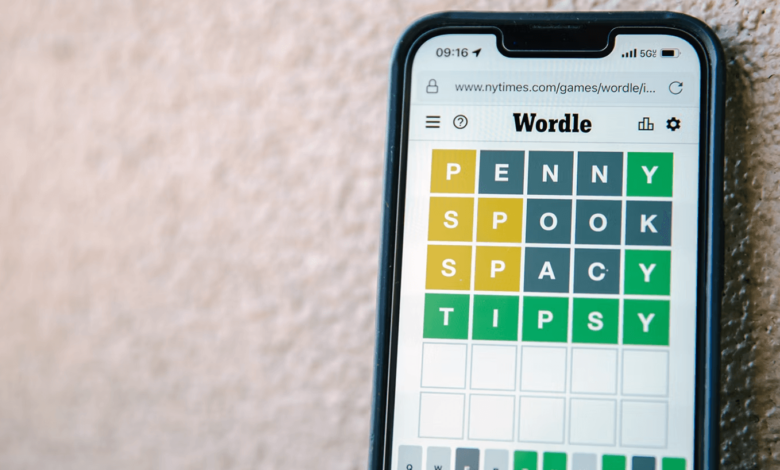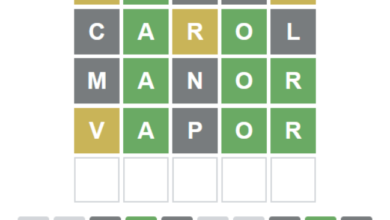Ultimate Guide to Try Hard Guides for 5 Letter Words in Wordle

Wordle has become a favorite daily puzzle for millions worldwide, with players aiming to guess the secret 5-letter word in the fewest attempts possible. For those looking to master this game and optimize their guesses, Try Hard Guides for 5-letter words are essential. In this detailed guide, we’ll explore the best strategies and tips to help you make the most of your Wordle experience. Whether you’re a beginner or a seasoned player, using a strategic approach will significantly improve your gameplay.
What Are Try Hard Guides for 5-Letter Words?
Try Hard Guides for 5-letter words are resources that provide tactical advice to help players solve Wordle puzzles more efficiently. Instead of random guessing, these guides focus on using high-probability words, analyzing letter frequency, and narrowing down potential solutions through smart word choices. With the right approach, even the trickiest Wordle puzzles become manageable.
5-letter words are the backbone of Wordle, and having a solid understanding of common words, patterns, and strategies can make all the difference in how quickly you solve each puzzle.
Why Focus on 5-Letter Words?
Wordle exclusively uses 5-letter words, making it crucial to have a mental (or written) list of go-to options. By familiarizing yourself with 5-letter words that include common vowels and consonants, you can dramatically improve your chances of identifying the correct word within a few guesses. Here’s why focusing on 5-letter words is important:
- Pattern recognition: Repeated use of certain letters can quickly guide you toward the solution.
- Elimination of unlikely letters: A proper understanding of letter frequency helps eliminate less likely options early on.
- Efficient gameplay: Starting with high-frequency words speeds up the process of finding the solution.
By utilizing Try Hard Guides for 5-letter words, you will develop a systematic approach to Wordle, making your guesses more calculated and effective.
The Best 5-Letter Words to Start With
In Try Hard Guides for 5-letter words, one of the most frequently recommended strategies is starting with words that contain multiple vowels and common consonants. This approach helps you gather essential information about the puzzle in your first few guesses.
Here are some of the best 5-letter words to begin your Wordle game:
- Audio: Contains four vowels, making it excellent for figuring out the presence of vowels early on.
- Raise: A great balance of vowels and consonants.
- Adieu: Another vowel-rich word that helps identify the correct letters early.
- Stone: A solid mix of common letters and vowels.
- Crane: One of the most popular starting words due to its combination of commonly used letters.
By starting with words like these, you can eliminate multiple letters or confirm their presence in the solution, drastically narrowing down your options.
Common Letter Combinations in 5-Letter Words
According to Try Hard Guides for 5-letter words, recognizing common letter combinations can make your guesses more effective. For instance, letters like “S,” “T,” “R,” and “N” appear frequently in 5-letter words. By incorporating these letters into your guesses, you increase your chances of narrowing down the solution quickly.
Here are some of the most common letter combinations in 5-letter words:
- ST (e.g., Stone, Stick, Start)
- CR (e.g., Crane, Crack, Craft)
- PL (e.g., Place, Plain, Plant)
- TR (e.g., Train, Treat, Trace)
Identifying patterns in these common combinations will help you strategically guess words as you gain more information from the game.
Eliminating Unlikely Letters
One of the most critical elements of Try Hard Guides for 5-letter words is the process of elimination. Each guess you make should be aimed at maximizing the information you get from the word. Once you’ve identified letters that aren’t in the word, it’s important to avoid using them in future guesses.
Here’s a step-by-step approach to eliminating unlikely letters:
- Start with a vowel-rich word to identify the presence of vowels.
- Use common consonants such as “R,” “S,” and “T” in your second guess.
- Avoid reusing letters that have been confirmed as absent.
- Make educated guesses by focusing on potential letter positions based on your previous results.
For example, if you guess the word “stone” and discover that “S” and “E” are correct, but “T,” “O,” and “N” are incorrect, you can focus your next guess on different combinations using the confirmed letters.
Advanced Tips from Try Hard Guides for 5-Letter Words
If you’ve already mastered the basics, here are some advanced techniques to up your Wordle game:
1. Use Wordle Solvers Responsibly
While the goal is to solve Wordle puzzles on your own, using a Wordle solver can help you understand how word patterns and letter frequencies work. These tools use algorithms to suggest the best possible guesses based on the information you’ve gathered. However, solvers should be used sparingly if you want to maintain the challenge and fun of the game.
2. Analyze Letter Frequency
English words follow certain letter frequency patterns, with letters like “E,” “A,” “R,” and “T” appearing more frequently in most words. By focusing your guesses on these letters, you can narrow down your options quickly. Conversely, avoid guessing rare letters such as “Z,” “Q,” and “X” unless you’ve confirmed their presence in the word.
3. Keep Track of Previous Guesses
Tracking your guesses and the information they provide is key to efficiently solving Wordle puzzles. By keeping a mental (or written) list of confirmed and eliminated letters, you can make better-informed decisions as you progress. This habit will help reduce the number of incorrect guesses and improve your overall gameplay.
Common Mistakes to Avoid
Even the best players can make mistakes. Here are some common errors to watch out for:
- Repeating incorrect letters: Once a letter has been ruled out, avoid using it in future guesses.
- Relying on rare letters early on: Focus on common letters first before turning to less frequent ones like “Z,” “Q,” or “J.”
- Not considering letter placement: Pay attention to which positions are correct or incorrect for each letter in your guesses.
By avoiding these mistakes, you can ensure a smoother, more efficient Wordle-solving process.
FAQs About Try Hard Guides for 5-Letter Words
1. What is the best starting word for Wordle?
A great starting word is one that contains multiple vowels and common consonants. Words like “audio,” “raise,” and “stone” are popular choices for their vowel variety and frequent letters.
2. How can I improve my Wordle strategy?
To improve your Wordle strategy, focus on vowel-rich words, use high-frequency consonants, and track your progress. Additionally, studying common letter patterns and eliminating unlikely letters can drastically improve your gameplay.
3. Are there tools to help me solve Wordle?
Yes, there are Wordle solvers available online that can provide hints based on your previous guesses. However, for a more rewarding experience, it’s best to rely on your own strategies and only use solvers for learning purposes.
4. How many guesses should I aim for in Wordle?
Most skilled players aim to solve the puzzle in 4-6 guesses. With consistent practice and using the strategies in this guide, you’ll be able to lower your guess count over time.
5. What if I keep getting stuck in Wordle?
If you’re frequently getting stuck, try adjusting your approach by starting with different words, focusing on common letters, and practicing letter elimination techniques.
Read also: Try Hard Guides Wordle: Essential Tips and Strategies
Conclusion
Mastering Wordle is all about strategy, and using Try Hard Guides for 5-letter words will help you solve puzzles more efficiently. By focusing on high-frequency letters, recognizing word patterns, and eliminating improbable letters, you can improve your game and solve Wordle puzzles in fewer guesses.
Remember, Wordle is not just about luck—it’s about applying the right techniques consistently. With regular practice and the strategies outlined in this guide, you’ll be well on your way to becoming a Wordle master!




